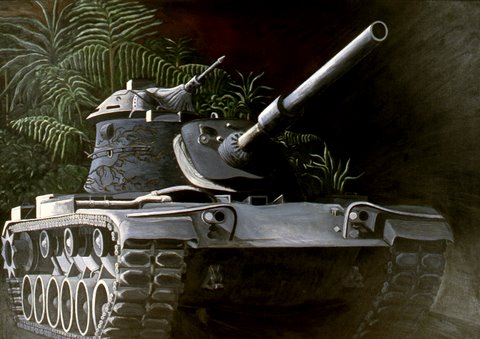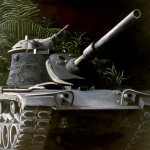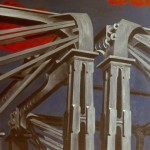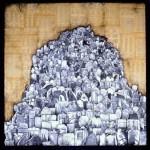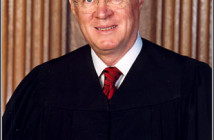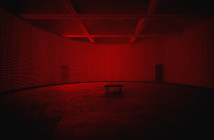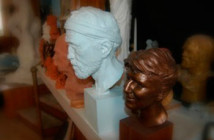SUSAN ERONY: A PORTRAIT
Susan Erony is an artist, historian, scholar, independent curator and adjunct professor currently residing in Gloucester, MA. She has grappled with complex and highly controversial subjects in her work and life for nearly three decades as a way of raising awareness and social consciousness. Her subject matter includes genocide, the holocaust, the roots of evil and hatred, the methods and consequences of war and torture, the pseudoscience of eugenics, weaponry and the byproducts of the industrial revolution, social culture, individual identity and how history, science and politics inform and predicate them. Her work ranges from series - multiple explorations of a single subject on a small scale, to the grand statement, larger than human scale. Erony's artwork is often dark, mixed media, combining photo montage, collage and assemblage with painting and draftsmanship. While aesthetically engaging for its meticulous craftsmanship and texture, she gives a voice to the silenced and destroyed, shedding light on the hidden, exposing the dark shadows that lurk in the collective memory of our histories that demand our attention, consideration and time.
In the mid '80s, Erony began expressing social commentary through her work. She stopped practicing in her career as psychotherapist and immersed herself in researching and making art about the industrial revolution in America. She wanted to make a statement about Reagan's military budget, the millions of U.S. dollars spent on weaponry, on machines that were manufactured for the sole purpose of killing. The American M-60 tank caught her interest because it was the main battle tank used in Vietnam, and the last industrial tank before the advent of computers. In order to paint it she needed a good photograph. Without one available, she arranged to photograph at Fort Devens in Ayer, MA. She was struck by her reaction to the experience. Not only was she presented with a spectacular specimen of a tank, but treated as an honored guest and assigned a well-informed mechanic and driver, who was a wealth of information. After completing the photo shoot, she accepted a ride through the forest in the powerful M-60. She was unexpectedly and disconcertedly thrilled and seduced by this machine and she realized that nothing is ever simply black and white. There are always multiple grey areas and perspectives to every issue, which require an openness to listen and consider before affirming a certain view. M-60 Tank, from 1985, captures the power and seductive quality of the tank. It's a dramatic image of the M-60 penetrating the dense jungle, but never surmounting the web of tangled foliage, of nature, which still reigns triumphant.
Erony spent 11 years cultivating images, researching, lecturing, and making art about genocide. She started with questions about her own father, a Jewish-Ukrainian refugee and her identification as a Jew to try to gain insight into the nature of the rabid hatred executed against her people in the holocaust. She was led on a journey into the darkest corners of history, of irreconcilable death, suffering and destruction, of man's capacity for hate and evil, and there came no understanding. After 11 years of uncovering genocide in all corners of the globe she could find no justification, and it was profoundly disturbing to realize that the portent of evil exists in all human souls.
Her final two pieces in the series, My Father's Coat and Promised Land lay to rest her intellectual and spiritual expedition through genocide to understand her father and his journey as a refugee in 1930's America by literally burying his coat in a painting. "Promised Land", a reference to the land God promised the Jews in Israel, explores the promise of America, the land of opportunity, the land to which her father fled.
Erony is currently completing a series on the issue of safety in post 9/11 America, entitled 36 Safe Places, 18 of which are on display at New England Bio Labs through September 9th. She hopes and intends for a public exhibition of the series upon its completion.
Erony believes art has a transmutable quality. By making art about horror, one injects an element of humanity, like a lone candle in vast darkness. Distilling time and distance intellectually and spiritually creates a place for contemplation for an audience, an outlet for healing and transformation. Erony believes that art, which speaks out against mistreatment and murder, is tolerable in the comfortable safety of a museum/gallery setting; "there is space to mourn and feel protected by the inherent aesthetic qualities of the art."
Can art change society? "I believe that art can save the world. I expect still in my heart that if one sees a great painting that one will become enlightened and that's what keeps me going."
- Susan Erony, M-60 Tank, acrylic on canvas, 1985.
- Susan Erony, Bridge Truss, acrylic on canvas, 1986.
- Susan Erony, Tower of Babel #2, mixed media on canvas, 1996.
All images are courtesy of the artist.

